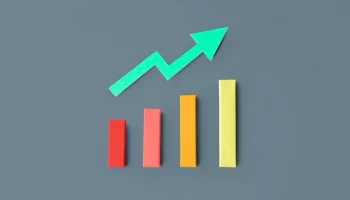More than 100k candidates take the CPA exam every year, and only 50% manage to clear it. The exam has four parts, each with a 4-hour long exam. Professionals opt for this qualification to advance their careers in accounting and finance.
Checklist To Prep For A CPA Exam

So, if you’re aiming to become a CPA, we will tell you how to prepare for the CPA exam. Let’s get right into it.
1. Mentally Prepare Yourself
As we mentioned earlier, the CPA exam is challenging. So, prepare yourself mentally. Last-minute doubts are not helpful. Therefore, make a commitment and stand firm. You can try meditation if you feel the anxiety kicking in.
2. Know The CPA Exam Requirements
You must know the fundamental requirements to be legible for a CPA exam when mapping out your professional and academic journey. For starters, you have to be 18 years old before taking the exam.
You must also have completed an undergrad degree from an accredited institution or at least 120 hours of college credits. Some states require a bachelor’s be in accounting or business-related subjects. In addition, some states require at least 150 hours of college credits. Most states also require completing at least 24 semester hours in accounting and business-related coursework.
While most states require a valid social security number to take the exam, states like New York, Wisconsin, and Illinois do not. Some states like North Carolina also require you to be a US citizen. So be sure to check in with your respective state before registering.
How To Take Care Of The Administrative Process?

Preparing for the exam also includes applying for the exam, attaining your Notice to Schedule (NTS), and scheduling your exams. Additionally, before you schedule yourself to take the exam, you should know the CPA exam schedule to learn about testing centers, results, retesting, and more.
Decide When To Take Each Exam

There is no one-size-fits-all approach to deciding when to take the exam. It depends on you. In addition, proactive planning can help you save time to study.
»Know The content
The exam has four levels:
- FAR( Financial Accounting and Reporting)
- Auditing and AUD Attestation
- REG( Regulation)
- BEC (Business Environment and Concepts)
»FAR has 66 MCQs & 8 Simulations That Test Your Real-Life Scenarios Skills
You’ll be tested on:
- The financial reporting process organizations use
- How to create financial statements, including balance sheets, retained earnings statements, equity, income statements, cash flow statements, and comprehensive income statements
- How to enter data into ledgers after reviewing source documents
- Knowledge of accounting standards like the US SEC, the FASB, the IASB, and the GASB
»AUD has 72 MCQs And 8 Simulations. It Tests Your Knowledge On:
- Planning, reviewing, obtaining, and information
- Internal controls and preparation for communications
- The difference between international and US accounting and auditing standards
- Violations and penalties
- How to create audit reports for financial statements, auditing standards, regulations, internal control, compliance standards
- The AICPA, the 2002 Sarbanes-Oxley Act, Accountability Office, and the US Labor Department
»REG Has 76 MCQs Covering That Cover The Following:
- Business law, tax procedures for people, organizations
- Different business transactions, legal consequences, and state and federal laws
- Rights and responsibilities of creditors, debtors, and guarantors
- The process the Internal Revenue Service (IRS) uses
»BEC has 62 MCQs, Four Simulations, And Three Written Tasks That Test.
This test is for your writing skills, clarity, organization, and conciseness. You must also know the following:
- Business structure, economic concepts, IT, and financial and operational management
- Managing financial risks, corporate governance, and strategic planning
- Global business economic concepts and their impact on business strategy
- Business cycles and their impact on organizations
- IT and risk, the COSO, accountability, and financial reporting required by the 2002 Sarbanes-Oxley Act
Find An Online Prep Course

The Wiley prep course is the best when it comes to prep courses. The Wiley prep course ensures you stay updated on all relevant material and do not overlook anything. You should also study the AICPA blueprints.
»Form A Study Group
Studying alone is challenging, so join a study group or start one instead. One of the benefits of a study group is motivating each other and ensuring no one slacks. In addition, you can retain more information as you will engage with the material.
In a study group, each member is responsible for a certain topic. They have to understand it and then explain it to everyone else. Repeating this action will help retain the information.
»Take It Slow
The CPA exam covers many topics. Therefore, cramming information won’t be helpful. You should dedicate 2-3 hours every day to studying. It will help you stay consistent in the long term. You can use planners and alarms to help you create a study schedule.
»Care For Your Health
Do not settle for fast food because of your busy schedule. Prepare home-cooked meals. You can dedicate one day out of the week to cook your meals for the entire week.
Conclusion
Clearing the CPA exam is a difficult challenge. However, being proactive can make it easier. You should mentally prepare yourself to know the exam schedule and requirements beforehand. In addition, you should handle the administrative process and know what’s on the exam itself. Furthermore, use an online prep course that works for you and form a study group. Lastly, take it slow and also take care of your health.
Read Also:




























